Metropolitan Hilarion: Let us ask the Lord that our hearts may always be open to His Divine presence
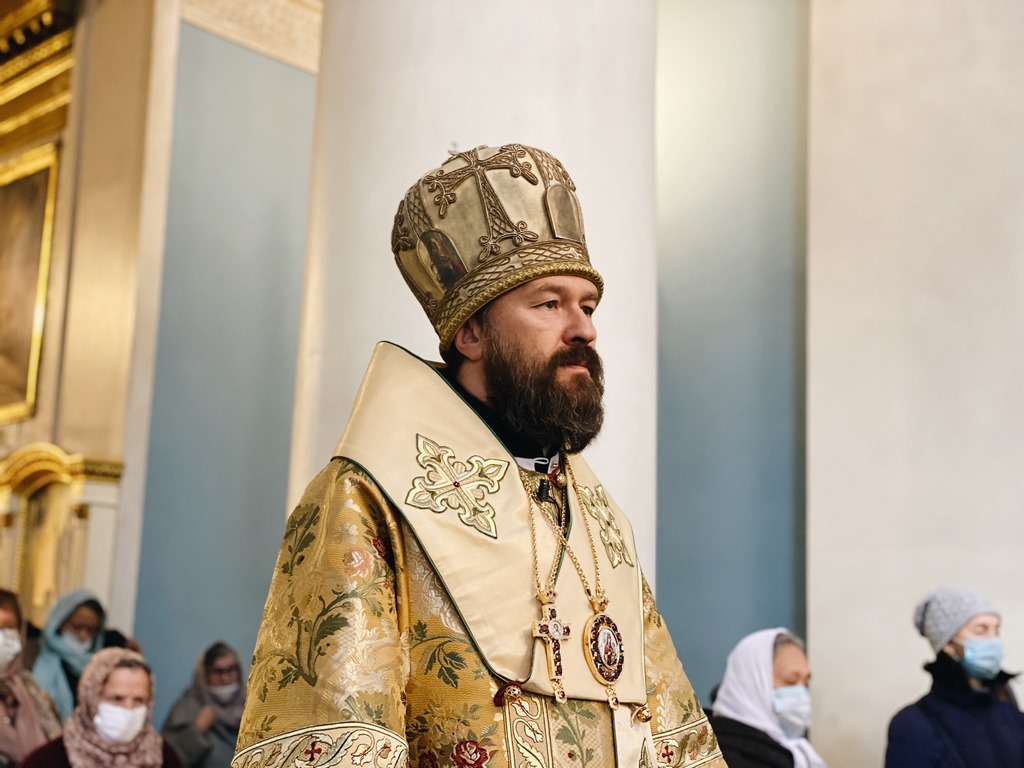
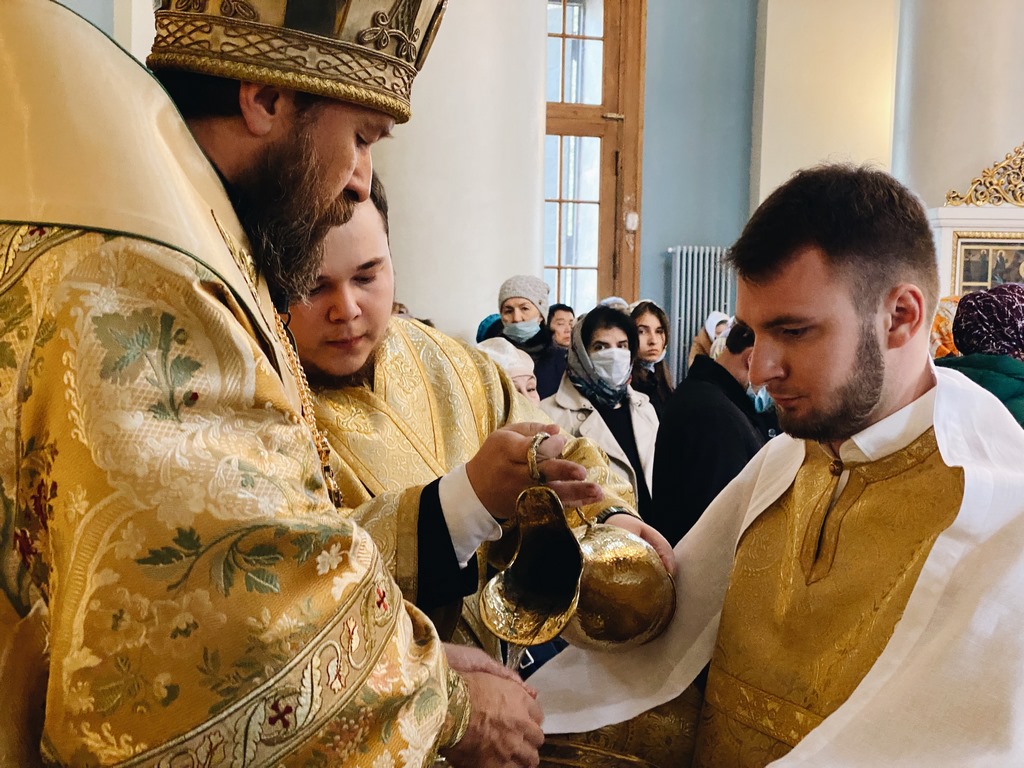
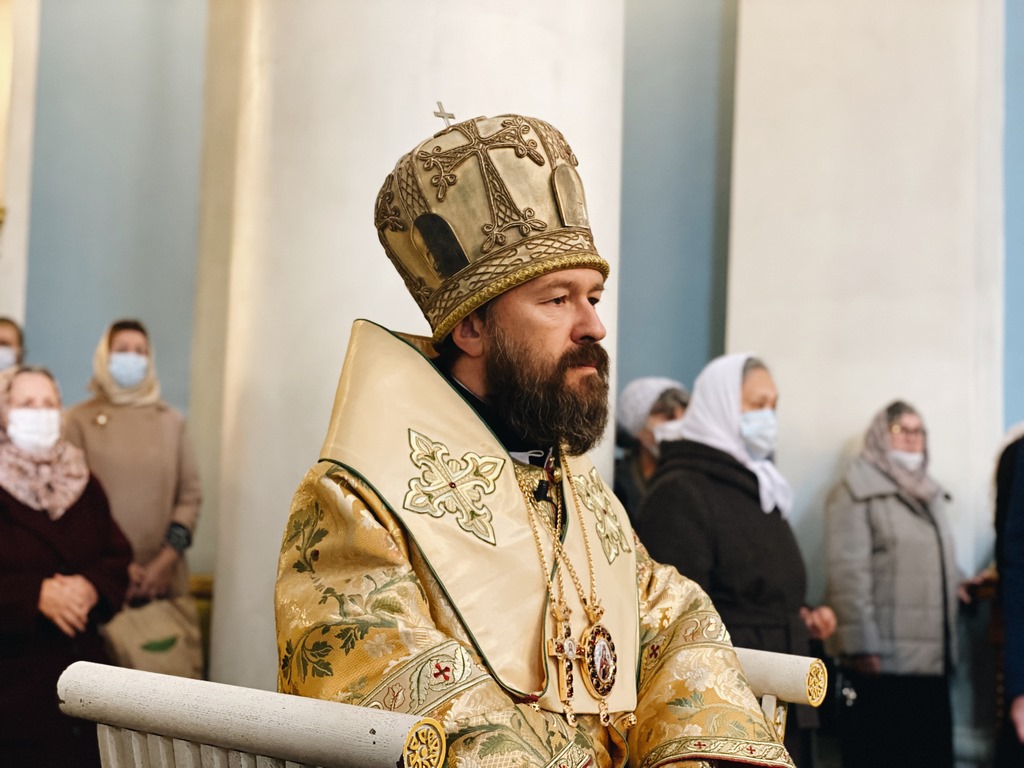
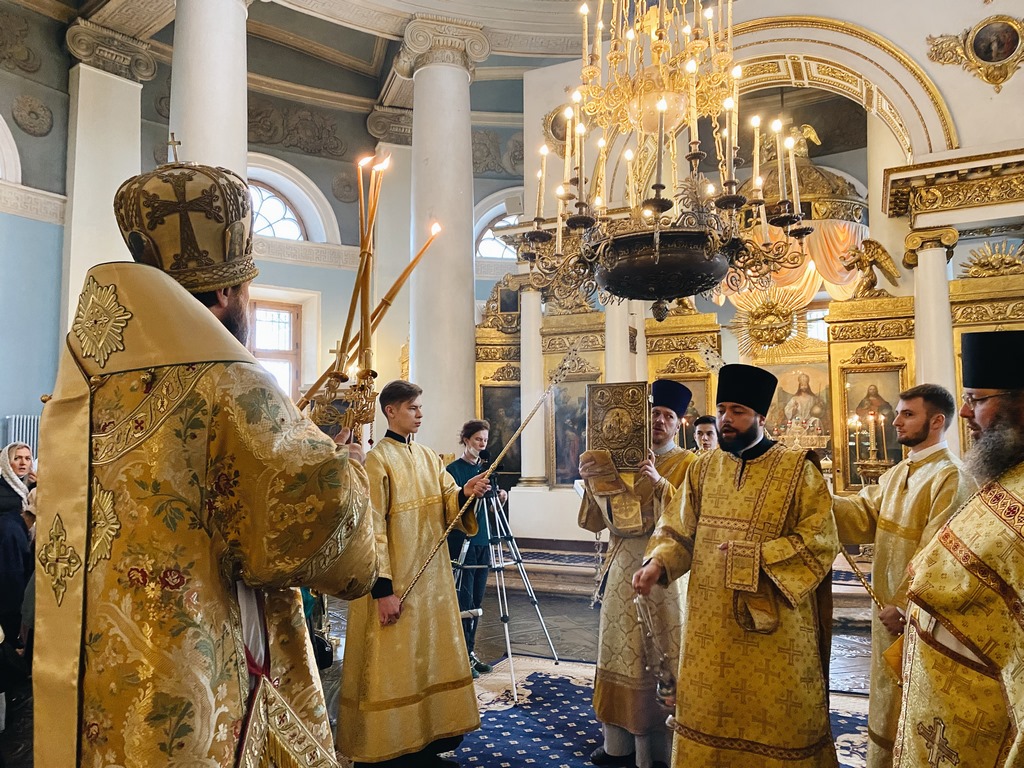

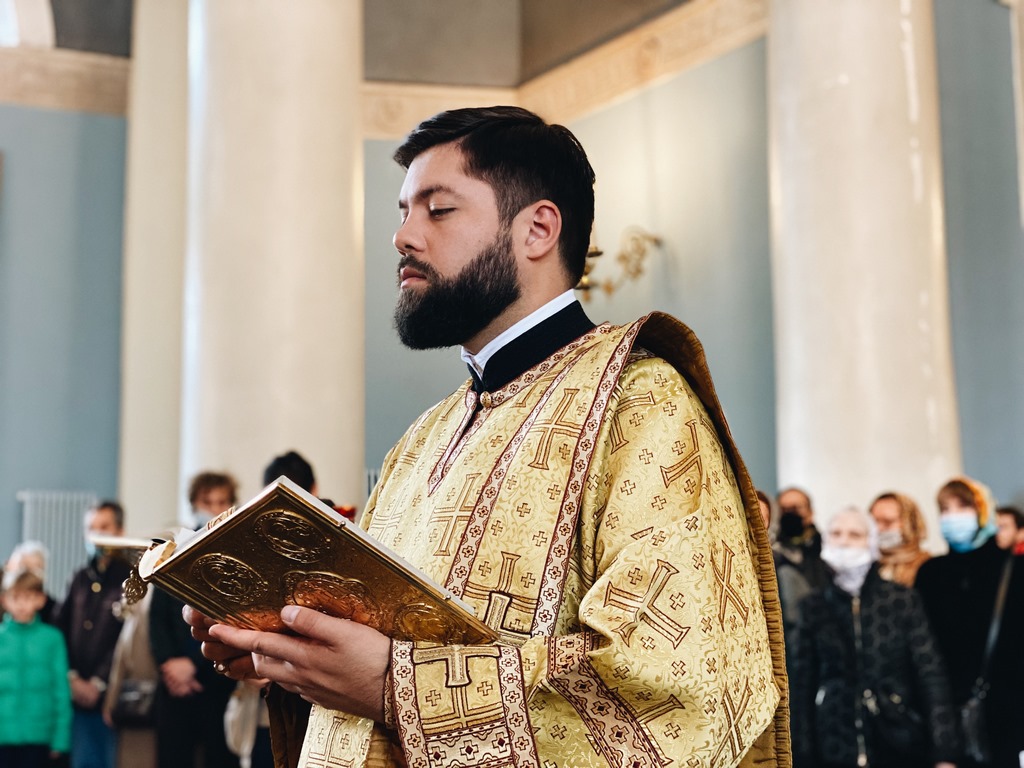
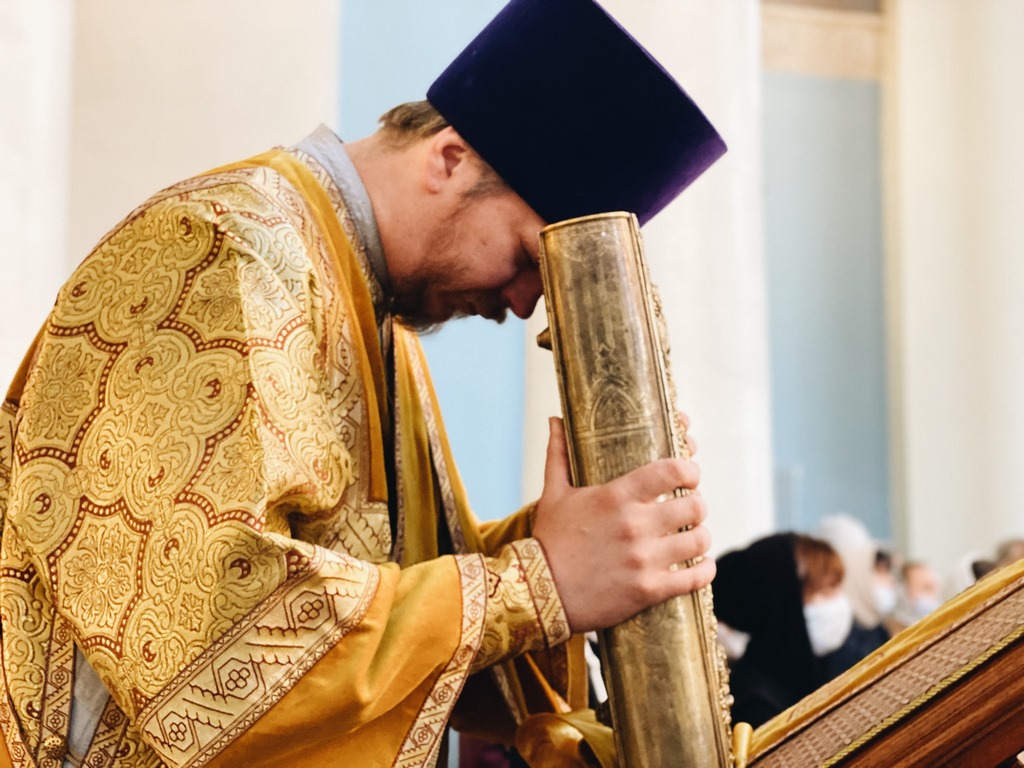
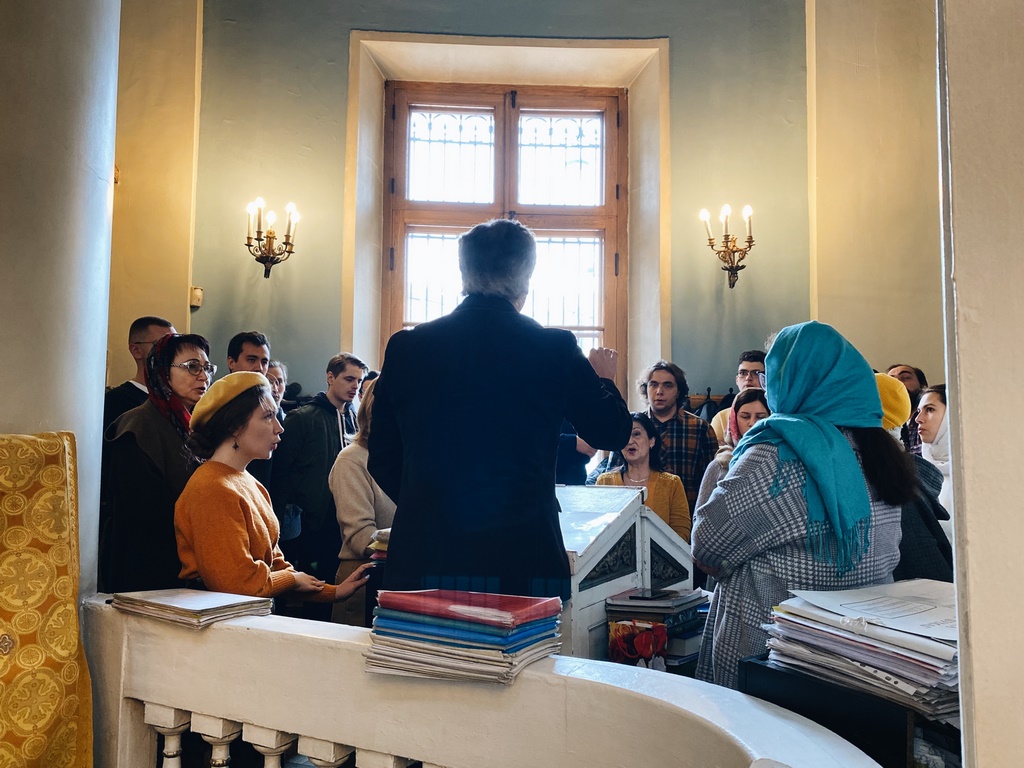
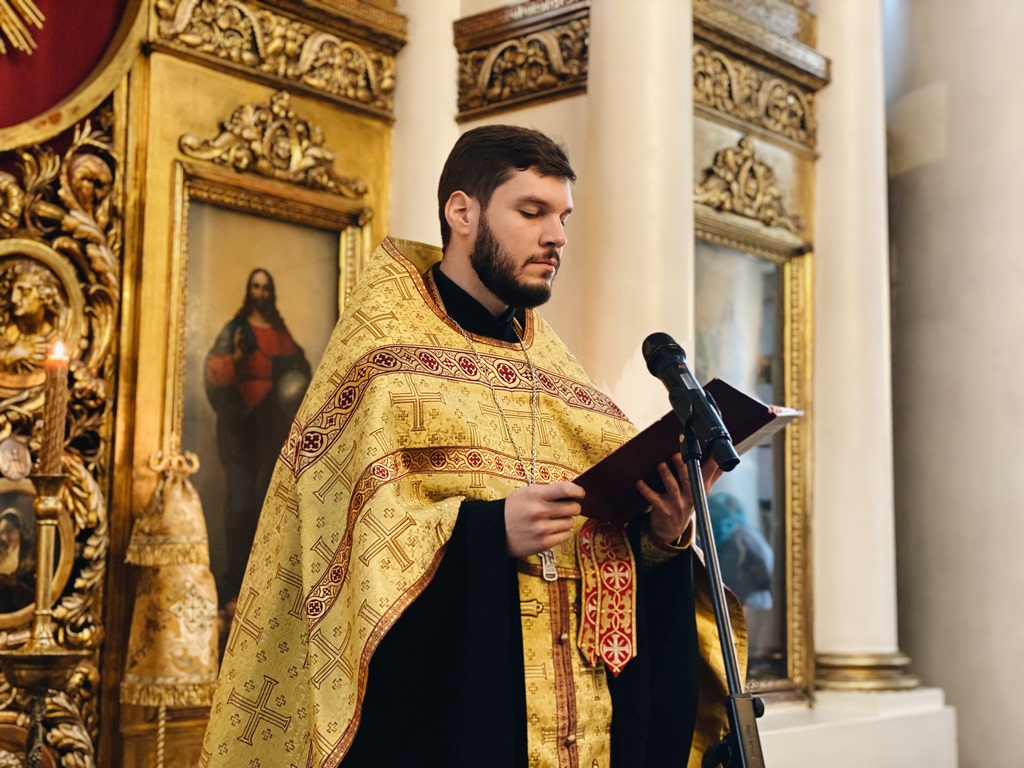
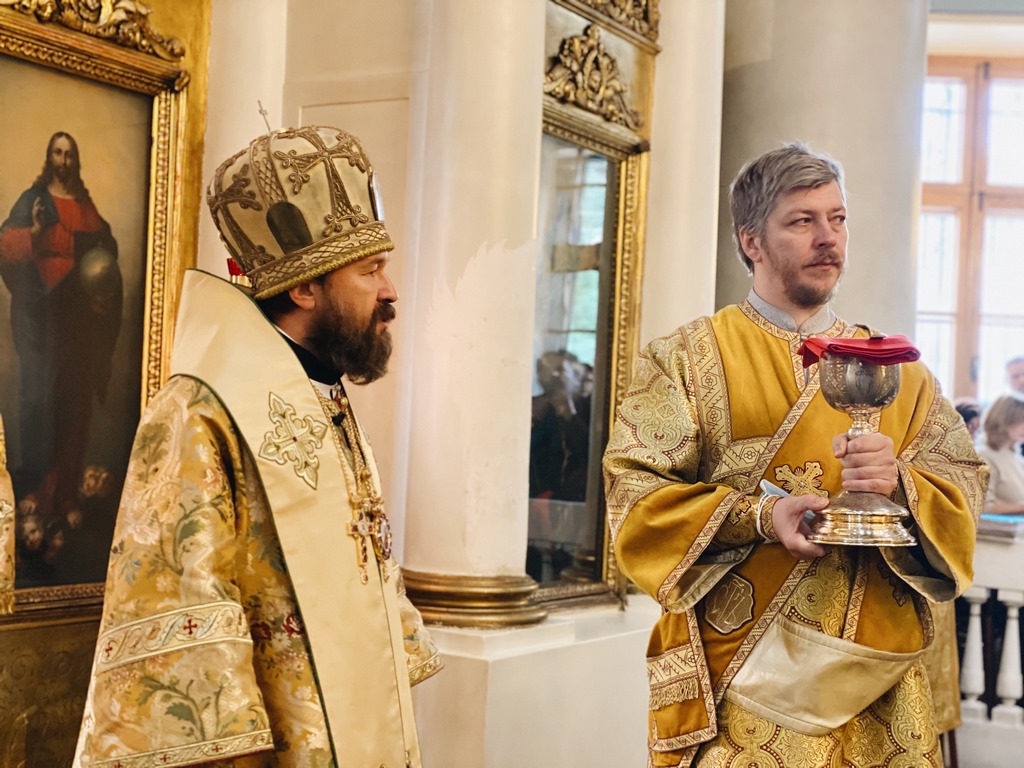
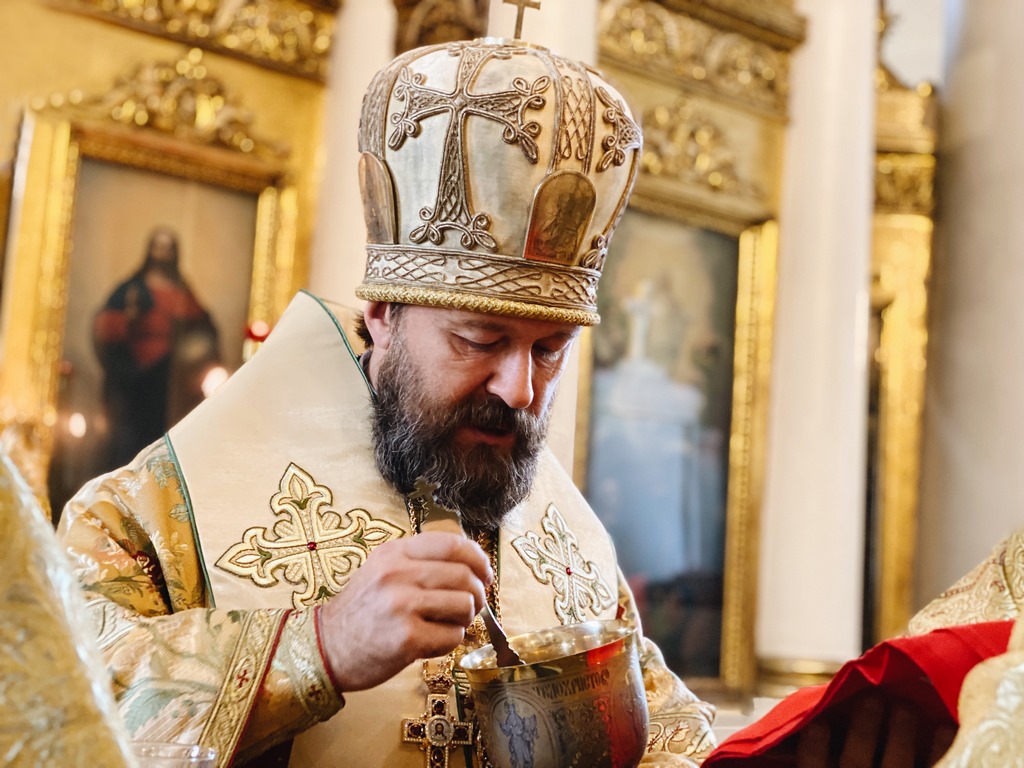
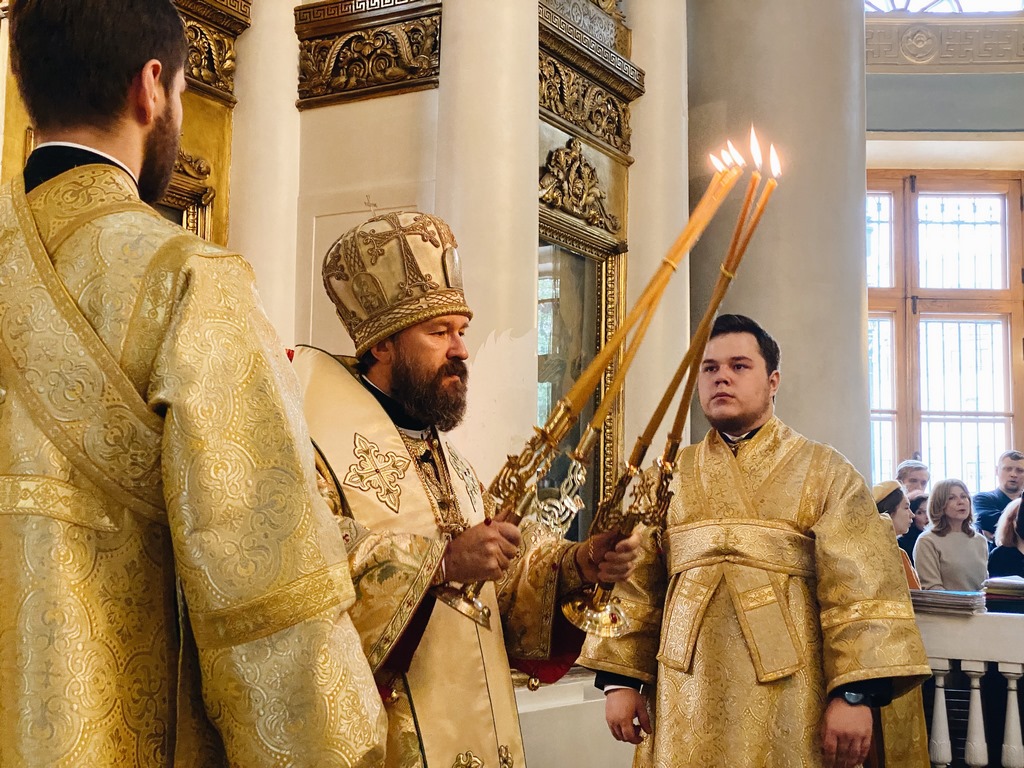
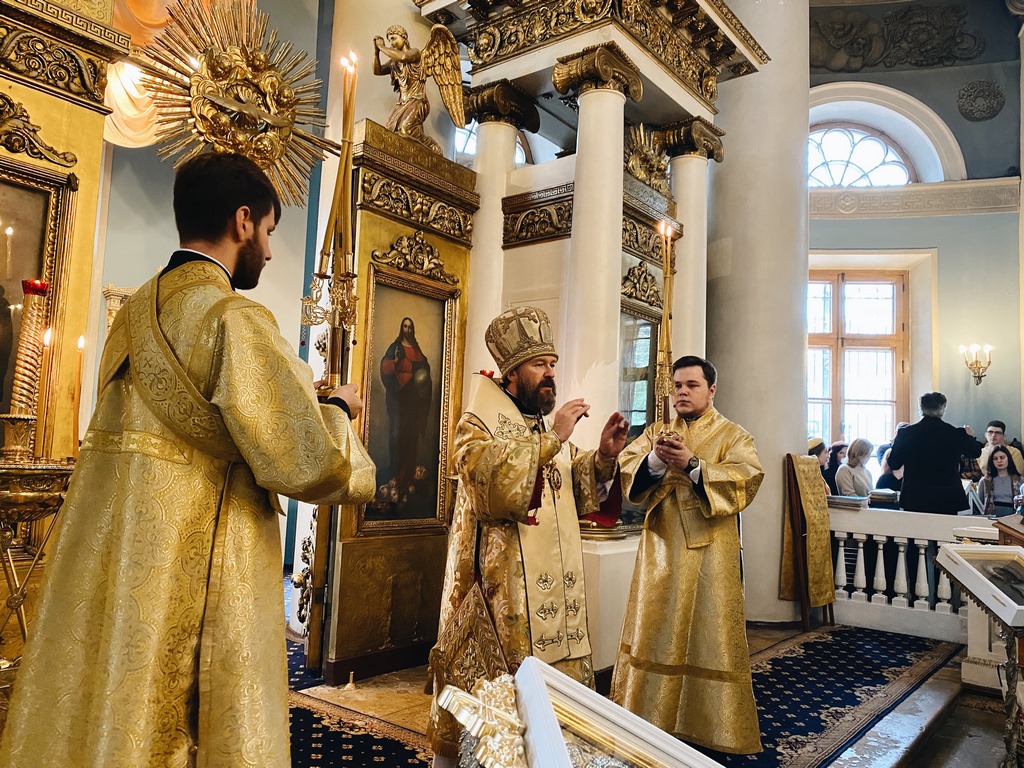
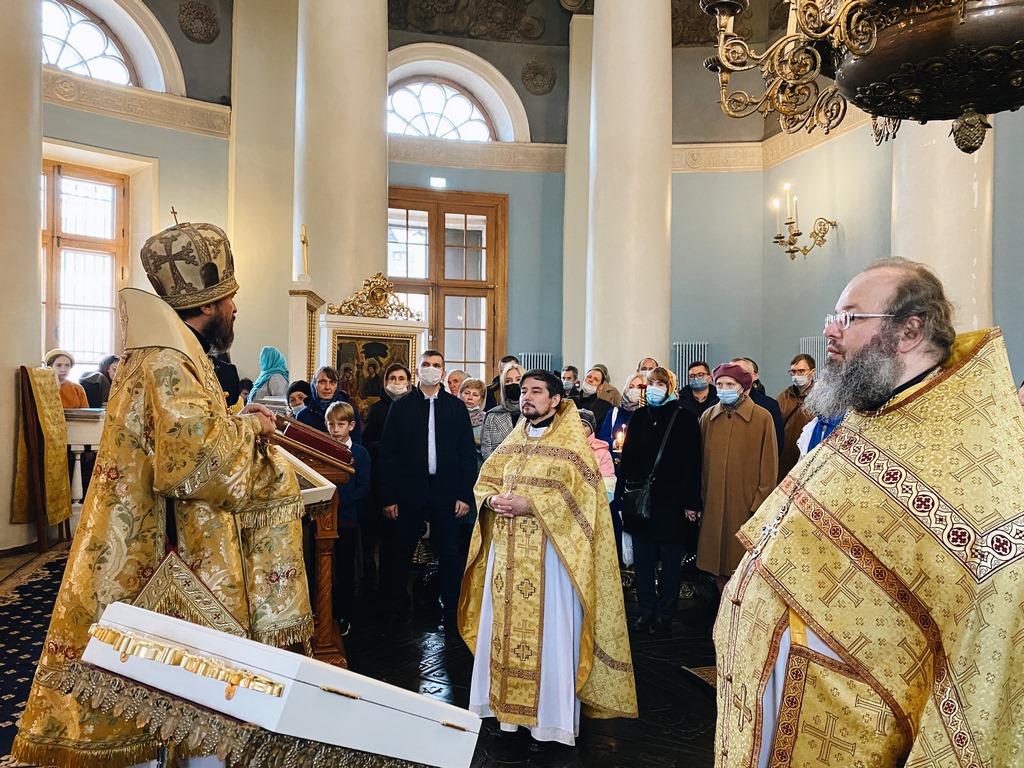
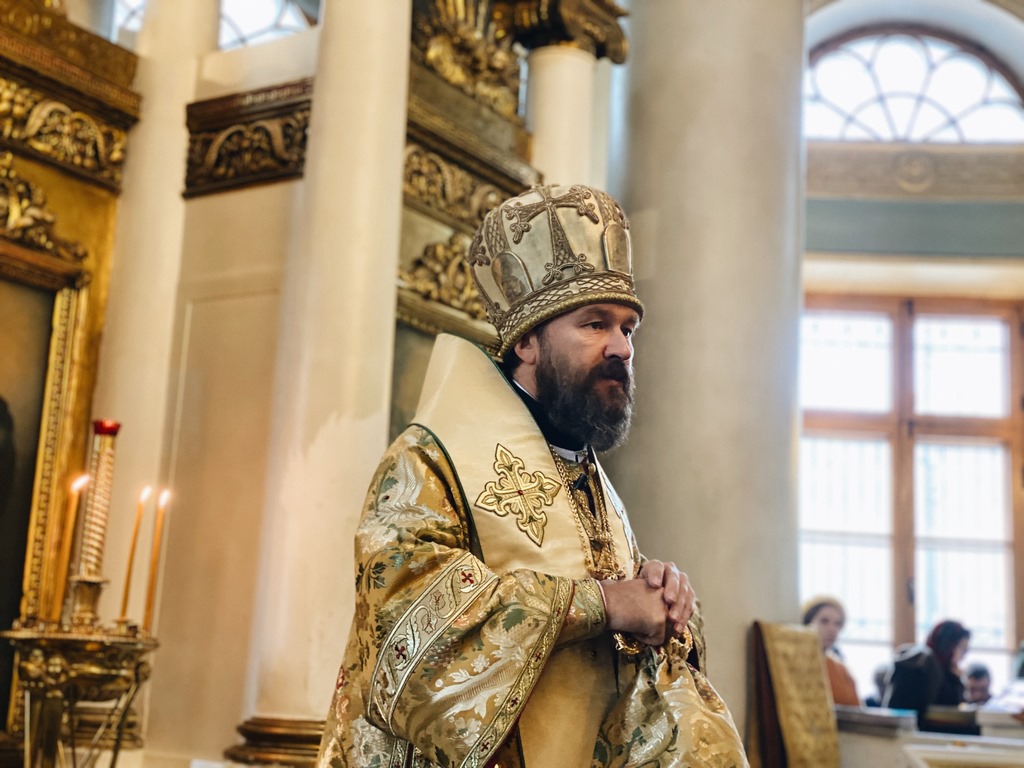
On September 19, 2021, the 13th Week after Pentecost, the Chairman of the Moscow Patriarchate’s Department for External Church Relations, Metropolitan Hilarion of Volokolamsk, celebrated the Divine Liturgy at the Moscow church of “Joy to All the Afflicted” icon of the Mother of God on Bolshaya Ordynka street.
Clergymen of the church assisted the archpastor.
During the Litany of Fervent Supplication, petitions were offered up for deliverance of the coronavirus infection.
After the Litany, Metropolitan Hilarion lifted up a prayer recited at the time of the spread of baneful pestilence.
At the end of the Divine Liturgy, the Archpastor addressed the audience with the following sermon:
At the end of the Divine Liturgy, the Archpastor addressed the audience with a sermon:
"In the name of the Father and the Son and the Holy Spirit!
When we read the Gospel, especially the Gospel of John, we often hear the Lord Jesus Christ speak about Himself. This caused confusion, and sometimes even indignation among the Jews: why does this Man always talk about Himself?
In the time of Jesus Christ, the Holy Scriptures were interpreted by rabbis. They took the Holy Scriptures and offered their own interpretations to these texts. They took the rules of the law of Moses and interpreted them for their contemporaries. The people are used to this kind of preaching.
And suddenly there comes a Man Who says: "I am the way and the truth and the life "(John 14: 6), "I am the resurrection and the life" (John 11: 25),"The one who eats My Flesh and drinks My blood has eternal life "(John 6: 54). Christ speaks of Himself all the time, both directly and in parables, for many of His parables are dedicated to His human destiny and Divine mission.
One of these parables we have heard today. It is the parable of the wicked tenants. Its plot is simple and unlikely. A rich, well-kept man planted a vineyard, planted it with a fence, built a tower in it, and appointed winegrowers to take care of it and gather fruit at the right time. And when the time of the fruit came, the lord sent his servant to take the fruit from the workers, but they beat the servant and sent him away empty-handed. Then the master sent other servants, but the tenants did the same to them. Finally, the master said, "I will send my beloved son; perhaps when they see him, they will be put to shame" (Luke20: 13). But when the wicked tenants saw him, they decided to kill the heir in order to take possession of all the wealth. And they brought him out of the vineyard and killed him.
In this parable, Christ speaks about Himself and about those prophets whose preaching and mission preceded the Savior's coming to this world, for for many centuries the Lord sent prophets to the people of Israel to proclaim His will and speak to people in the name of God.
But people, for various reasons and under various circumstances, turned away from the preaching of the prophets, did not want to hear the voice of God. This is why prophets often were killed violently: they were either stoned or otherwise put to death – people did not want to hear the voice of God, they wanted to live according to their own desires and lusts.
Then, finally, the Lord sent His Only Begotten Son into the world. And what was done to Him, we know from all the four Gospels. His sermon resonated in the hearts of many people, especially since it was supported by various miracles that the Son of God performed. It wasn't so much His preaching as His miracles that drew people to Him. But at the same time, the longer He preached, the more He proclaimed the will of God to the people of Israel, the more He acquired enemies and opponents among the rulers of the people, who made up the spiritual elite, that is, priests, scribes, rabbis, interpreters of the Holy Scriptures. Most of them took the Savior's message as a challenge.
But the Lord did not speak about Himself by accident, including in his parables. After all, He was neither an ordinary rabbi, nor an interpreter of the Holy Scriptures, nor a scribe; He did not receive the education that the teachers of the Israelites of His time possessed. But It was sent by the Father Himself. He is God Incarnate. The Jews were indignant, thinking that Christ was making Himself equal to God. However, He only told the people what He had heard from His Father. He came to save the human race.
If we turn to the Old Testament, we will see that its pages are filled with terrible warnings to men for the sins that they may commit, and terrible punishments that people were subjected to if they committed certain sins. The entire Old Testament is filled with prohibitions, instructions, and a list of punishments that a sinner must undergo in order not to defile the purity of the Israelite people.
But the Lord Jesus Christ came not only to give people some new commandments, but also to show the way to salvation and to take upon Himself the sins of each person, because these sins are unbearable for people themselves. A person, sometimes thinking about the life he has lived, about the sins he has experienced, feels their weight, and even if he has confessed these sins many times, they still continue to weigh him down. The Lord takes upon himself the burden of human sins. He frees us from guilt and responsibility for these sins if we confess them to Him, and fills us with His grace, despite our sinfulness, when we partake of the Holy Mysteries of Christ, we partake of the true vine, which is our Lord Jesus Christ Himself.
In the parable of the wicked tenants, which we have heard today, the Lord tells about Himself, about His human destiny and about the fate of His people, to which He belonged. But at the same time, this parable speaks about all of us, and how the word of God sounds today; how many people do not want to hear this word, do not want to respond to it, and some even resent the fact that this word is being proclaimed. They say that we should silence the preachers who allegedly impose some values or prohibitions on society, because people want to live according to their own will. “Let us not allow these churchmen and preachers impose norms on us that we do not want to fulfil”, they say.
History repeats itself, because in each new generation there are people who respond to the call of God, to the voice of the prophets, to the voice of Christ, follow or strive to follow His Divine commandments, and there are those who shut their ears and do not want to hear or see what the Lord wants to tell them. Even in the circumstances of life that sometimes arise and, it would seem, should make everyone think, such as the pandemic that has been going on for a year and a half, which is taking people's lives, many people do not want to see what is happening as a sign of God, they do not want to ask themselves: what should I do to stop this? They do not want to turn their hearts to God and embark on the path of repentance.
Whenever we come to the church of God for the Divine Liturgy, the Church offers us one of the Gospel readings. Every time we listen to these Gospel texts, we realize how important and relevant they are for us, living two thousand years after the events described in them.
Let us ask the Lord that our ears would always be open to His word, and our hearts would always be open to His Divine presence. So that, despite all our sinfulness, the Lord would visit us with His Divine grace, forgive our sins, and lead each and every one of us on the way to the Kingdom of Heaven. Amen."
DECR Communication Service
